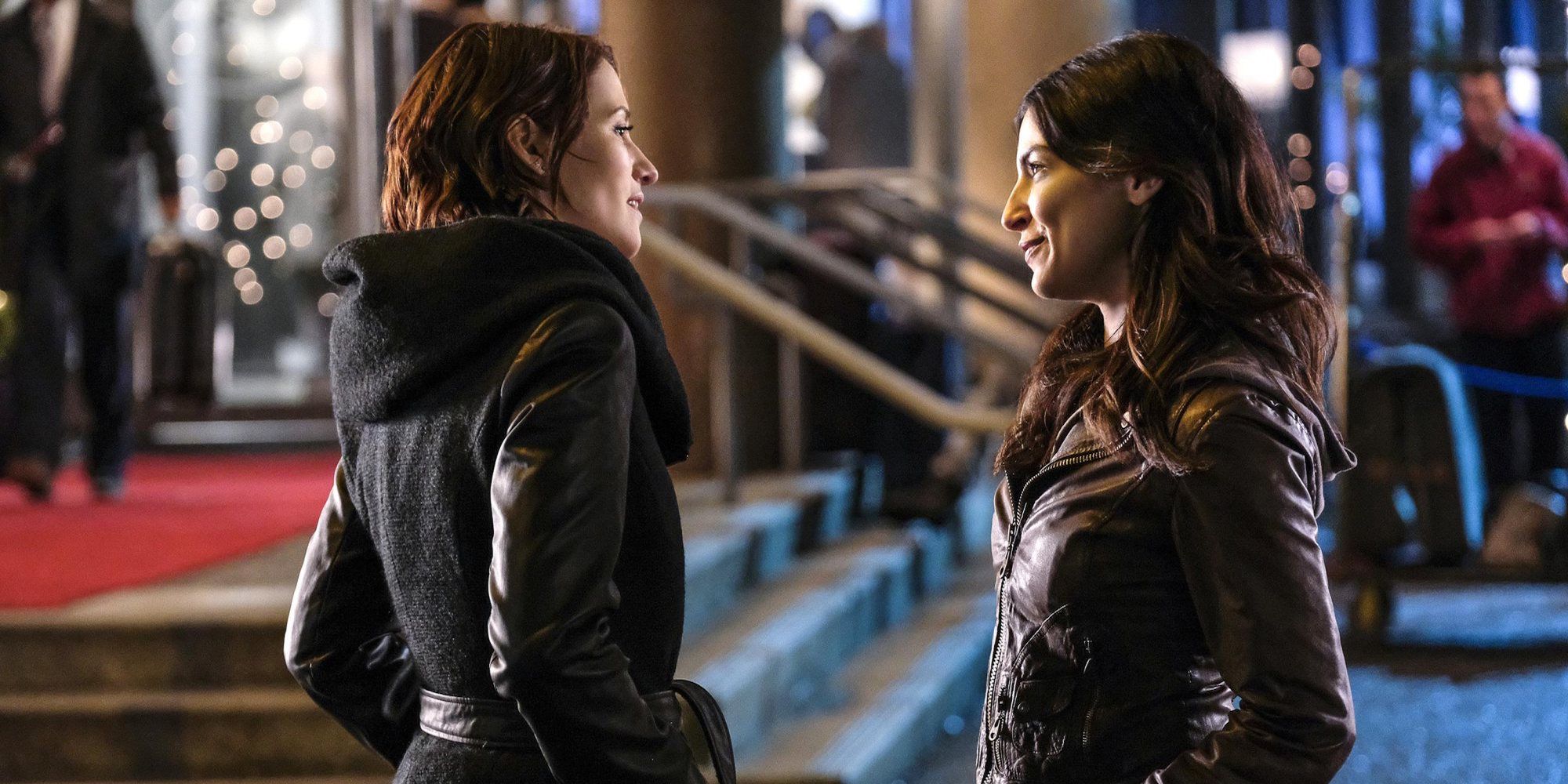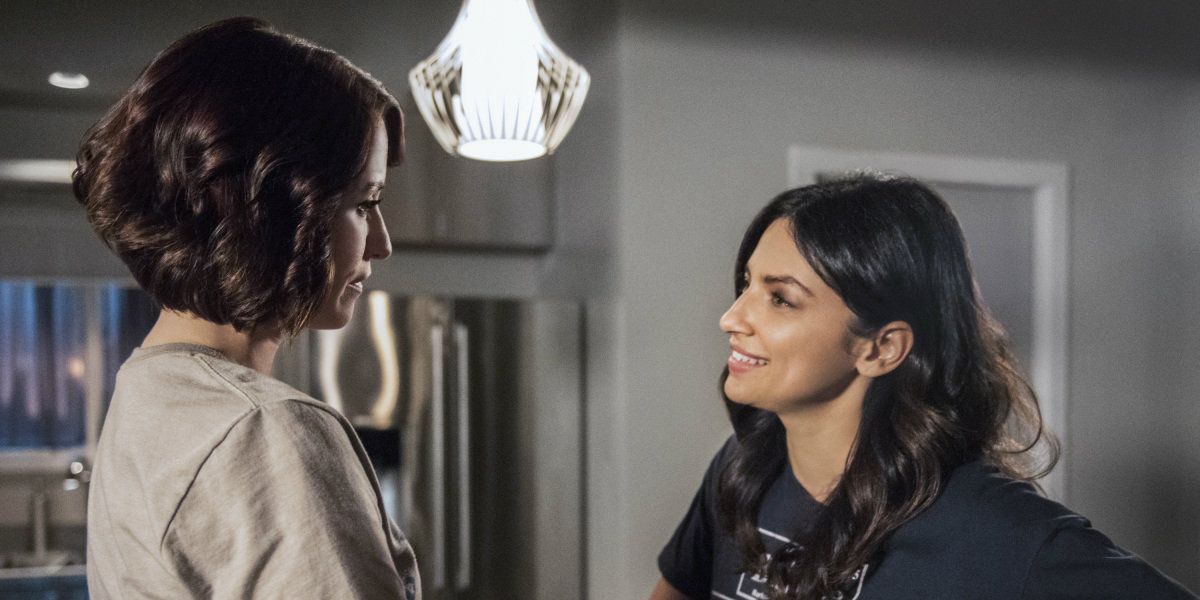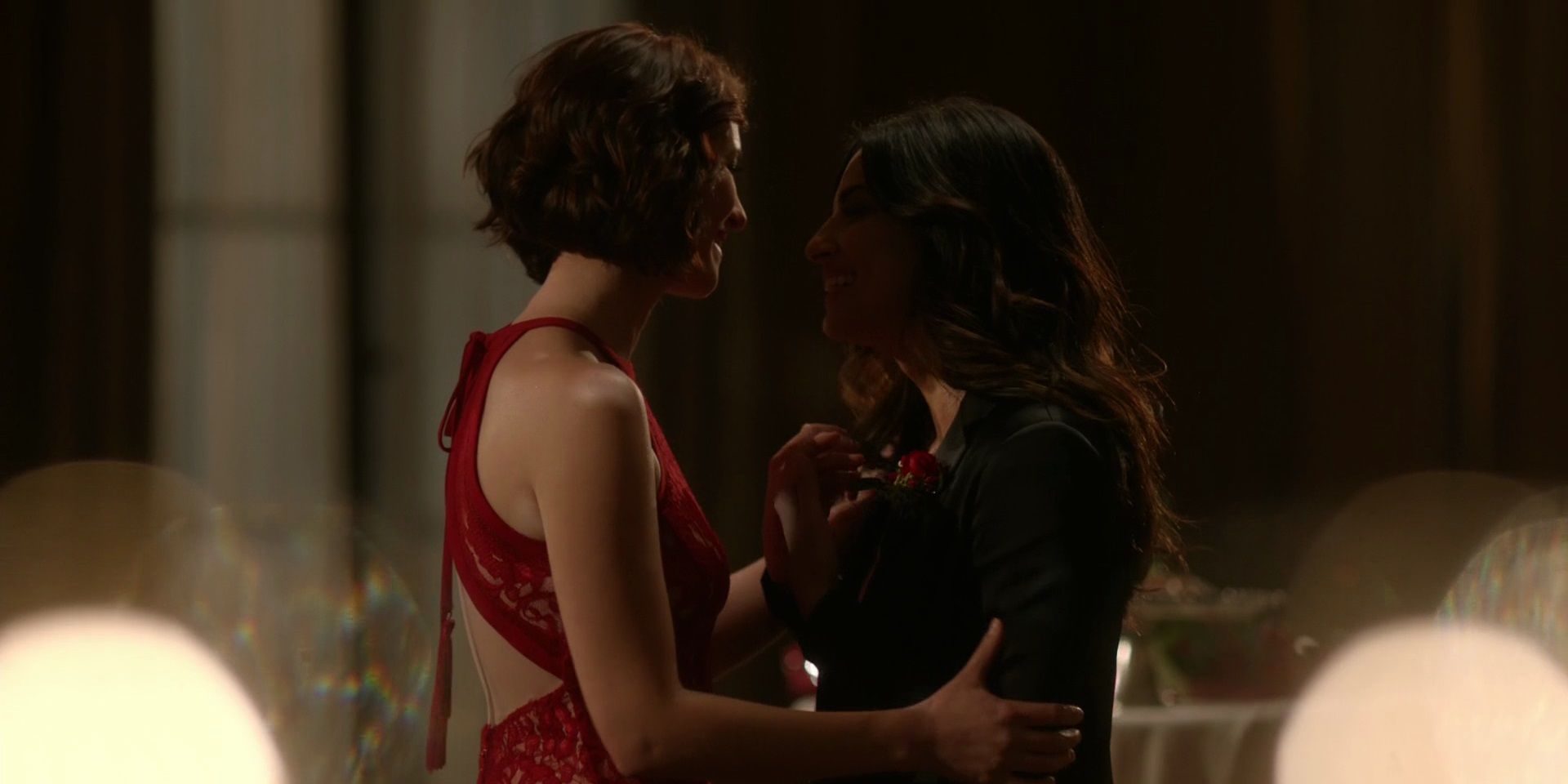Warning: SPOILERS ahead for Supergirl Season 3, Episode 5
-
The main problem facing the showrunners of Supergirl is the same as that which has bedeviled everyone, from Richard Donner to Zack Snyder, who has tried to tell compelling stories within the mythos of DC Comics' most reflexively-overpowered super-family: creating compelling drama around effectively death-proof figures whose godlike abilities make them capable of solving almost any crisis. For the most part, the series' solution has been the same one comic book writers figured out decades ago: the powers are for the spectacle, so the drama has to come from the human issues that not even Kryptonians can simply throw into deep space. It's an elegant solution that also fits in with the series' deliberate millennial rom-com aesthetic, and the practical need to stay within budget by having Kara Zor-El fill up her day with activities that don't require expensive green-screen work.
This has meant that Supergirl has set itself apart from the rest of the Arrowverse, which it shares continuity with while also taking place a dimension or two removed in the multiverse, by being more directly focused on inter-character relationship drama (romantic or otherwise) as a driving force for major storylines. A typical episode will likely feature a super-powered enemy to battle or a city-imperiling threat to neutralize, but often as an extra complication within a main story more focused on love, family drama or difficult friendships. This has made the Supergirl fandom a hotbed of "shipping" culture - where fans pledge support for various real or prospective pairing-offs of various characters.
In terms of exposure and impact, no relationship storyline in the series thus far has been the equal of "Sanvers," a pairing of Kara's adopted sister Alex Danvers (Chyler Leigh) and Floriana Lima's Detective Maggie Swayer. While not the first female same-sex romantic pair in the DC TV universe, their storyline won fans over in part for how it played out across the breadth of Supergirl's second season. Alex grappled with her own long-suppressed sexuality and the uncertain experience of coming out to her friends, family and even herself, in tandem with building a relationship with the more experienced Sawyer, who warned her about the perils of falling too hard for her first "real" girlfriend. The pairing was enthusiastically received by viewers, critics and particularly LGBTQ cultural-critics; who lauded the series' nuanced and forward-looking approach to the storyline (by contrast fans were decidedly mixed on the relationship drama between Supergirl herself and Mon-El, which dominated the second half of season 2's main arc.)
One of the things that had "Sanvers" devotees so smitten was the general lack of tragedy or overblown melodrama present in their story. While 21st century television is no longer devoid of same-sex couplings or LGBTQ characters in general, a pervasive criticism of mainstream series' dealing with gay and lesbian relationships is that they always seem "fated" to be weighted down by tragedy or heartache, and seldom get to simply "exist" with the same casual normality that more traditional TV couples are afforded. Of course, serialized TV romance thrives on melodrama more often than it doesn't, but visiting so much misery on gay and lesbian characters also unquestionably feeds the cultural stereotype of same-sex romance as inherently tragic and ill-fated. That Alex and Maggie's life together was - apart from their adjacency to all things superheroic - fairly down to Earth was a breath of fresh air to many viewers.
But, fresh or not, that air about to dissipate: As of this week's episode, "Damage," the pair have broken things off and Maggie has departed - their engagement ended by an irreconcilable difference neither of them recognized even was a difference until it reared it's head at the start of the season. Alex wants children, Maggie is dead set against it, and encounters with new supporting player Sam's daughter Ruby crystallized the fact that the elder Danvers sister was unwilling to budge on the matter.
Fans who were hoping that the unhappy resolution might warrant an episode unto itself to commemorate what it meant for the series will be almost certainly disappointed to discover that the hashing-out of all this still happens in the margins of an otherwise standard Supergirl story. "Damage" was mainly dedicated to long-term plot maintenance like reminding us about Lena Luthor's family-history hangups, giving her, Sam and Kara bonding time, and hanging a lampshade on the silly-even-for-Supergirl "atmospheric lead bomb" plot device from the end of season 2.
On the other hand, what screentime was devoted to closing the book on "Sanvers" at least held to the standards of what fans had come to love about it in the first place: the honesty of the two women working through their impasse like grownups, sweet-natured romantic gestures like an impromptu dance scene and some frank intimacy that altogether came just up to the line of unfairly teasing devoted fans with the prospect that they might not pull the trigger after all. But in the end, what most knew was coming came and what's done is done; with the Danvers sisters heading off for some family time with their mother (original movie Supergirl Helen Slater) now that all three have tragic lost-loves to re-bond over.
Granted, fans of the storyline have been prepping for the end for awhile now, with Lima's departure as a series regular (for still unknown reasons) was announced over the summer break. And while the producers and cast consistently stopped short of confirming that this had to mean the end for the romance it had been assumed as a given for about as long. In fact, disappointed fans moved almost immediately from hoping for "Sanvers" to not end - period - to inundating the showrunners and CW itself to please, at least, not let Maggie Sawyer exit the series as yet another "dead lesbian;" the grim apotheosis of the aforementioned tendency for gay characters on TV to be framed as inherent magnets for tragic outcomes.
The question now becomes where Leigh's character will go with the center of her development for the last year plus of stories having more or less concluded: Some fan theorists have predicted that she's destined to wind up as surrogate mom to Ruby if the looming Reign storyline ends badly for Sam, while others are hoping to see her partnered with characters from Sam herself to Cat Grant (or Lena Luthor - presumably not solely because "AlexCorp" makes for a particularly clever ship-handle.) More likely, though, the series won't throw her back into another serious relationship right away; given that the circumstances of Alex's journey have meant that her first actual immersion into the dating scene as a single gay woman is a story yet to be told. That's another experience that LGBTQ viewers have cringed at watching mainstream TV get wrong before, but if any series has earned cautious optimism Supergirl would be it.
Next: 7 Best (And 8 Worst) Arrowverse Characters
Supergirl airs Mondays at 8pm on The CW.



